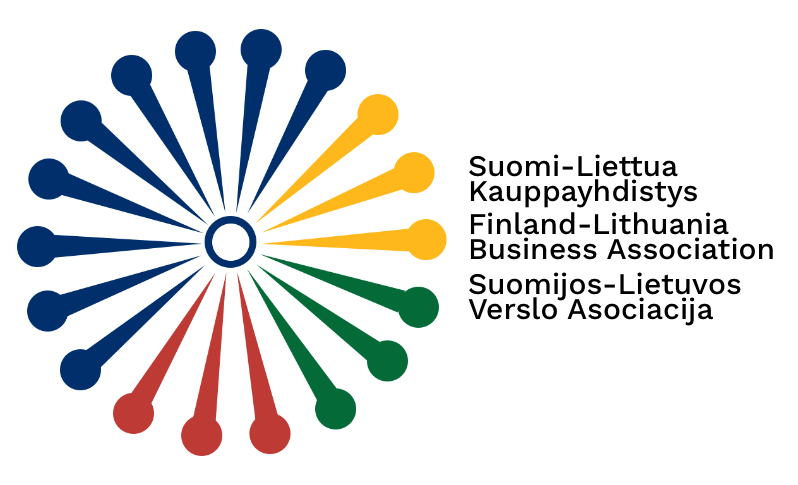Lithuanian wood sector – an example of the success of the country's economy
Lithuanian wood industry accounts for nearly 10% of the country’s GDP. At the beginning of 2021, 2126 companies active in this industry have employed 27000 workers comprising 2.8% of total employment.
More than two thirds of wood industry products in Lithuania are exported. In the first half of 2021, the trade in wood and wood products (including paper and paper products) grew faster than the total foreign trade. Lithuania’s foreign trade turnover (exports + imports) in wood and wood products increased by 29% and amounted 2.87 billion euros. The value of exported products was more than twice as high as that of imported goods, with a positive trade balance from 0.85 billion euros increased to 1.09 billion euros.
The main export markets remain Germany, the UK and all Scandinavian countries. Compared to 2020, 2021 indicates further increase in exports of wood and wood products: by more than 37% to Germany, 49% to the UK, 10% to Sweden, 14% to Norway, and 28% to Denmark. Unfortunately, in Q1 2021 export of pulpwood from Lithuania to Finland felt sharply, but already from Q2 commenced a slow recovery (to 21k m³). Nevertheless, this amount was still twice as low as in 2020.
The new furniture factory will increase the export of Lithuanian products to the Scandinavian countries
Lithuanian furniture in Scandinavian countries is highly valued for their quality-price ratio. It is one of the main goods transported from Lithuania to Scandinavian markets, and the overall value of exported products reaches 700-800 million euros (MEUR) per annum. It is expected that these volumes may increase even more next year as one of the most modern furniture factories in the Baltic States will open in Lithuania.
Last year, furniture exports from Lithuania to Sweden reached 351 MEUR, to Norway – 233 MEUR, 154 MEUR to Denmark, and 48 MEUR to Finland.
“Lithuanian furniture and wood sector generates one fifth of the country’s exports. It is receptive to innovation and pretty much crisis-resistant,” says Sigitas Paulauskas, the sole shareholder of the global investment company VMG Group.
Already next year, VMG group in the northern part of Lithuania, Akmene district, will open one of the most modern furniture factories in the Baltic States.
“Investments in this plant will reach 90 million. It will cover more than 5 hectares and create 500 high value-added jobs. It will not only increase the production volumes of Lithuanian furniture, but due to the implementation of green-tech solutions, all production will be carried out in a sustainable way,” says S. Paulauskas.
Three factories in one place
The furniture factory is being built in the Akmene Free Economic Zone (FEZ).
Since September 2020, in Akmene FEZ has already been operating the VMG Group’s particle board factory which is recognized as the largest green field investment in the history of Lithuania. It was allocated 146 MEUR of CapEx, and 140 new jobs were created. To increase the particle board production capacity, another 15 MEUR will be invested in this plant this year.
Next-door will also be built an engineered wood factory which will create about 350 new jobs.
“Investments are not limited to factories. We are planning renewable energy projects in the territory, in order to ensure a supply of clean energy to all producers located in the Akmene FEZ,” says S. Paulauskas.
According to him, after investing almost 900 000 euros, this year one of the most powerful 2 MW solar energy parks in the country will be installed on the roof of the building.
It is also planned to build a 30 MW wind farm surrounding the Akmene FEZ. Investments will amount approximately 33 MEUR. The project is expected to be completed by 2024.
By 2025, altogether only VMG Group’s investments in Akmene FEZ will create more than 1 000 new jobs and result in half a billion euros of CapEx.
Akmene FEZ is improving conditions and waiting for new investors
Akmene FEZ has officially launched in 2019 and is the youngest of the 7 operating in the country, but the pace of its development is extremely fast – more than a third of the existing territory has already been sub-leased.
“This free economic zone is the youngest, but we are seeing most impressive projects here, and there should be more of those coming up,” said Lithuanian Prime Minister Ingrida Simonyte during the press conference in August.
Lina Mockute, director of Akmene FEZ states that the success of attracting investments largely depends on successful combination of developed infrastructure, granted economic benefits, and the supply of labor force in the region.
“In order to attract foreign and local investors, we are focusing on creating favorable conditions for their establishment and integration. The installed essential infrastructure significantly reduces the initial investment and time required by investors for the design and construction of new facilities, but also to quick-start their production, logistics, warehousing operations” says L.Mockute.
By this time, the Akmene FEZ and the Akmene district municipality have already allocated more than 13 million euros in the development of the territory’s infrastructure and while planning ahead they are committed to invest even more further developing the Akmene FEZ’s infrastructure.
According to L. Mockute, Akmene FEZ aims to attract investors from various sectors, but indeed the highest interest is expressed from wood processing companies since the present development direction forms the Akmene FEZ as the new wood cluster in Lithuania.


